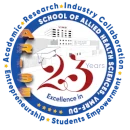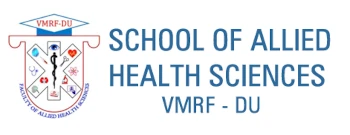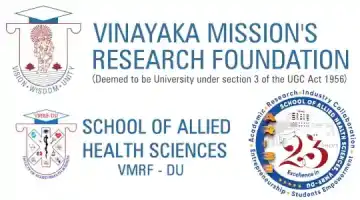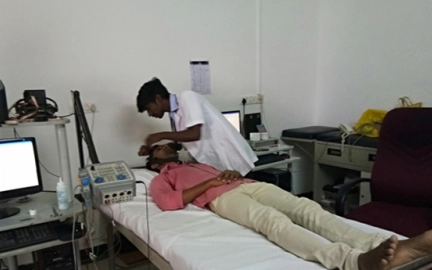B.Sc. Neuroscience Technology – FAHS Salem
Training in Brain Monitoring and Neurodiagnostic Techniques
Course Description
Medical Neuroscience is a course for medical students, physical therapy students, and graduate students in the basic medical and related sciences, which emphasizes the multidisciplinary study of the human central nervous system. The course consists of lectures and laboratories, and group discussion sessions on patient cases dealing with nervous system disorders. The course material is interrelated throughout these forums, giving students multiple approaches for learning the material and giving faculty multiple approaches for teaching. All lectures, labs, and group discussion cases emphasize integration of basic science concepts with clinical significance and applications. Basic and clinical correlations are further reinforced by a series of lectures highlighting contemporary research and clinical issues in neuroscience, such as developmental and emotional disorders, fetal alcohol syndrome, dementias, and gender-related differences in brain structure and function. The course faculty are drawn from basic and clinical departments in the College of Medicine, including Anatomy and Cell Biology, Physical Therapy and Rehabilitation, Neurology, Psychiatry, Pediatrics, and Neurosurgery. II.
Objectives
- To introduce basic concepts about the organization, structure, and function of the human central nervous system
- To enable students to apply these fundamental principles toward understanding nervous system function and dysfunction and toward clinical problem-solving in relation to disorders that affect the nervous system, with emphasis on the central nervous system
- To provide the necessary foundation in neuroscience upon which students can build for the rest of their medical training and professional careers. Upon completion of the course, students’ will have a working knowledge of the structure and function of the human nervous system necessary for their clinical clerkships, for advanced study of the nervous system, and for monitoring new developments in the basic and clinical neurosciences.
Outcomes
At the end of the program graduates will be able to
- Perform various diagnostic procedures like electroencephalograms, evoked potentials, polysomnograms, nerve conduction studies (N C S) and electronystagmograms.
- Interpret the results and discuss with the concerned neuro physician
- Work under the supervision of a physician and assist in EMG guided injections.
- Identify the design of neurotechnology products
- Will be able to understand the concept of neurotechnology and work towards innovation.
- Analyze the design of neurotechnology prototypes and products, identifying the role of critical design variables such as brain processing, sensory processing, neural signals, learning process, user involvement in design, the specificity of each pathology and the needs of the patient.
- Recognize their role in health care system and function effectively in a multidisciplinary health care team.
- Can work as a lecturer in various life sciences programs
- Practice professional and ethical responsibilities with high degree of credibility, integrity and social concern.
- Understand the machine settings and parameters for performing a test in patients with neurological disorders.




